The views expressed in our content reflect individual perspectives and do not represent the authoritative views of the Baha'i Faith.
When I was a boy I loved walking the streets of New York City with my mother. We lived in a small apartment in the residential community of Roosevelt Island, between Manhattan and the borough of Queens. On Saturdays, we would head into the city to run errands, catch a film, or visit a museum. We would take the train downtown to shop at thrift stores in the Village or head uptown to explore the Schomburg Center for Research in Black Culture and the Studio Museum in Harlem.
My mother seemed to know everything there was to know about the city — the best places to eat, all the cool things to see and do. Exploring Manhattan with her was an adventure of discovery. During the summers we roller skated in Central Park and enjoyed ice skating at Rockefeller Center in the winters. We walked the cavernous halls of the Metropolitan and the Museum of Modern Art, caught matinee performances off-Broadway, and sometimes we would just sit on a park bench sharing a slice of pizza and watch the city go by.
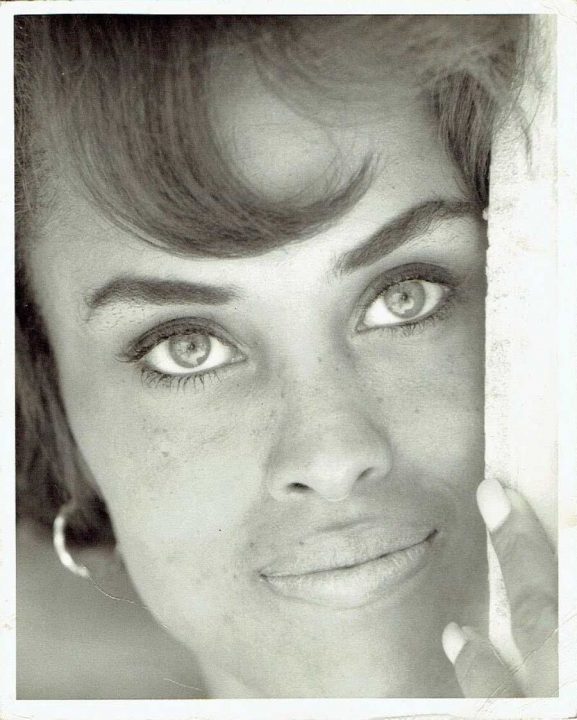
It was so much fun —well, most of it anyway. You see, my mom was a beautiful woman. I know that most people, given the chance, would say the same thing about their own mother and be justified in doing so. Every individual has a dimension of beauty expressed externally and/or internally, but my mother — Barbara Vivian Totten — was, in the language of the streets, fine (attractive; pleasing to the eye) with a capital F by any objective measure. I knew this even as a 9-year-old boy.
I could tell by the way other people reacted when she walked into the room. Her striking features coupled with her elegant bohemian attire and her regal bearing made her a point of fixation. In the late 1960’s she worked as a model with featured spreads in Ebony and Jet magazines, the only two editorial publications that featured black models at the time.
She was accustomed to being looked at. Most of the time, the attention was expressed respectfully. Men would compliment her on the color of her eyes or her smile, but there were other times —when someone would yell something from a passing car or from across the street at a busy intersection —that felt like an assault on her dignity. It was in those moments that I felt most protective of my mother. I was only 70 or 80 pounds at the time, but I was ready to fight to defend her.
Even as a child I knew the difference between reverence and a desire to possess. I could feel it. One elevates, the other degrades. One acknowledges beauty as a reflection of the Divine, the other prioritizes the physical form above all else, unmindful of the spirit that animates it.
I developed a heightened sensitivity for the respect I felt my mom deserved. That regard extended to include all women generally and to black and brown women most especially. Maybe it was the way the black female body seemed to represent an intersection of oppressive ideologies, a point of convergence for racism and sexism, that so deeply offended me. My mother, like all black women, was waging a war on two fronts, and the weight of her burden seemed fundamentally unjust.
As Maya Angelou wrote in “I Know Why the Caged Bird Sings,” “If growing up is painful for the Southern Black girl, being aware of her displacement is the rust on the razor that threatens the throat. It is an unnecessary insult.

For some reason, I just couldn’t reconcile the objectification of women with how I saw my mother. There was something in me that knew that every girl or woman was somebody’s daughter, mother, sister, aunt, or grandmother, and in some fundamental sense if I mistreated one, I was mistreating them all. I resented the way some of my peers spoke about girls in their absence, and how they would approach them in public spaces: “Hey baby, what’s yo name?” “You sure looking good today, can I get that number?”
Maintaining that perspective, however, has not always been easy, particularly when the powerful influence of popular culture reinforces debased iterations of masculinity and perverse conceptions of femininity that gradually shape the way men and women regard themselves and one another. For me, an example of this bitter reality can be traced in the rise and fall of a compelling new art form that was birthed in the urban ghetto of the South Bronx in the early 1980s.
I was 11-years-old when hip hop exploded as a cultural phenomenon. From its earliest beginnings in New York City with acts such as Grandmaster Flash, the Sugar Hill Gang, and the Funky Fresh Crew, rap music developed as the poetic language of the streets set to beat music.
In those days, there was a social consciousness prevalent in much of the new art form, which had its roots in the performance poetry of the Last Poets, Amiri Baraka, and Gil Scott Heron. Hip hop developed as a creative response to the systemic injustices of poverty, racism, and excessive materialism. In that sense, it shared a cultural legacy with the spirituals and the Delta blues — poor people divested of the levers of power using art to respond to their circumstances. A powerful example of this was Grandmaster Flash and the Furious Five’s iconic song “The Message,” released in 1982 on the Sugar Hill Records label. The lyrics say:
“Broken glass everywhere, people pissing on the stairs, you know they just don’t care. I can’t take the smell, can’t take the noise — got no money to move out, I guess I got no choice — rats in the front room, roaches in the back, junkies in the alley with the baseball bat — I tried to get away, but I couldn’t get far cause the man with the tow truck repossessed my car.”
Like it’s historical antecedents, rap music was an inventive and lyrically sophisticated modality of knowledge transference arising from the ranks of the dispossessed. In the 1990s, as hip hop became a commodified and integrated part of popular culture, it lost much of its social focus, and without a fixed moral framework as a grounding force, it imbibed the destructive forces of a degraded society; materialism, hubris, violence, and misogyny. This tragic development, coupled with the power of market distribution and promotion, influenced the value system of generations of young people, prioritizing the acquisition of wealth above integrity; egotism above humility; violence above consultation and peace, and misogyny above the dignity and respect for women.
As my spiritual journey towards the Baha’i Faith was evolving in the 1990s, I found myself increasingly at odds with the direction the music was taking. The teachings of Baha’u’llah on the inherent nobility of humanity are diametrically opposed to a focus on excessive materialism and egotism at the heart of a misdirected society. Baha’u’llah wrote in the volume “The Hidden Words”:
“Noble I made thee, wherewith dost thou abase thyself? Out of the essence of knowledge I gave thee being, why seekest thou enlightenment from anyone beside Me? Out of the clay of love I molded thee, how dost thou busy thyself with another? Turn thy sight unto thyself, that thou mayest find Me standing within thee, mighty, powerful and self-subsisting.”
The charge to choose peace over violence, such a vital dimension of the Baha’i Faith, is a renunciation of unregulated aggression that is sometimes regarded as an inescapable aspect of manhood. As Baha’u’llah also wrote, “ The purpose underlying the revelation of every heavenly Book, nay, of every divinely-revealed verse, is to endue all men with righteousness and understanding, so that peace and tranquillity may be firmly established amongst them.”
The unequivocal and irrefutable assertion of equality — not sameness — between the sexes, a pillar of Baha’i theology, is a resounding rejection of gender-based hierarchies of power that confine roughly one half of the world’s population to a perpetual state of inequality. Abdu’l-Baha, the son of Baha’u’llah, explained the Baha’i teachings on the equality of women and men. He wrote:
“The world of humanity has two wings — one is women and the other men. Not until both wings are equally developed can the bird fly. Should one wing remain weak, flight is impossible. Not until the world of women becomes equal to the world of men in the acquisition of virtues and perfections, can success and prosperity be attained as they ought to be.”
Now, to be clear, misogyny and sexism are not an innovation of hip hop culture. Indeed, for most black women in America, their first encounter with objectification and sexual violence occurred on the slave ship and the plantation, and women of all racial and ethnic backgrounds have, throughout human history, endured tremendous suffering at the hands of men. But sadly, rap music, like a number of creative expressions in our culture, has done far too little to mitigate this baneful legacy. Too often, it has only exacerbated its corrosive effects.
During those moments in my life, when I regrettably, lost sight of that perspective, the memories of my mother ultimately brought me back to that reality, and the explicit, unequivocal affirmation of equality in the Baha’i writings binds me to that enduring principle. We can, and we must, do better, for ourselves, our daughters, our sisters, and our mothers.


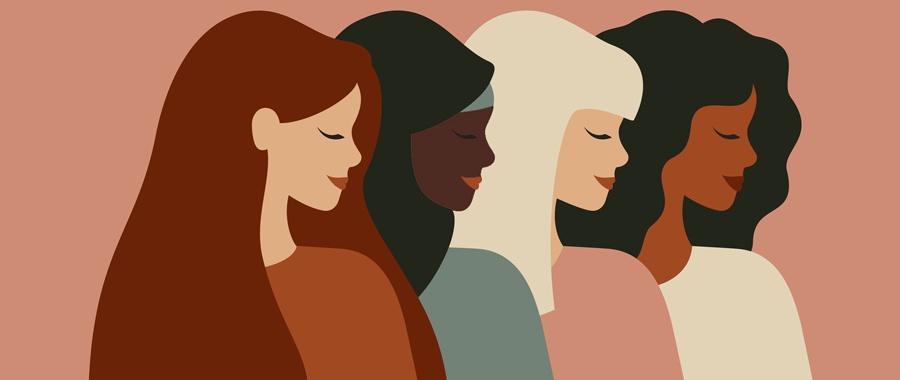

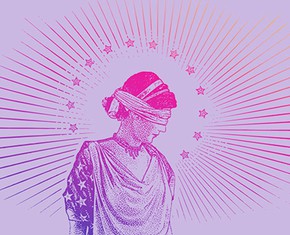

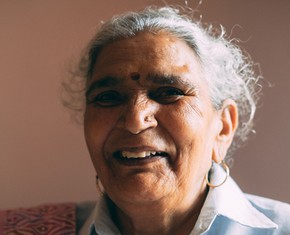



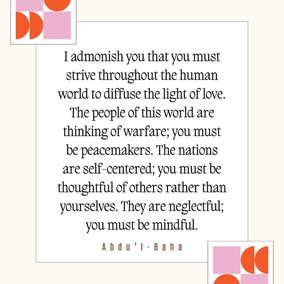
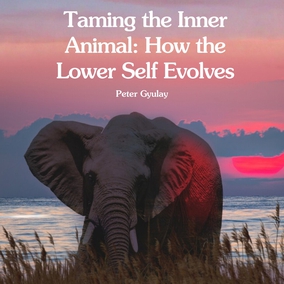
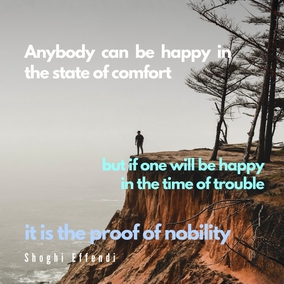
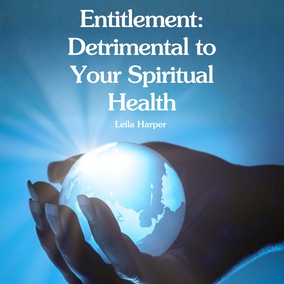
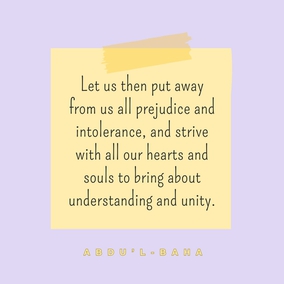

Comments
Sign in or create an account
Continue with Googleor